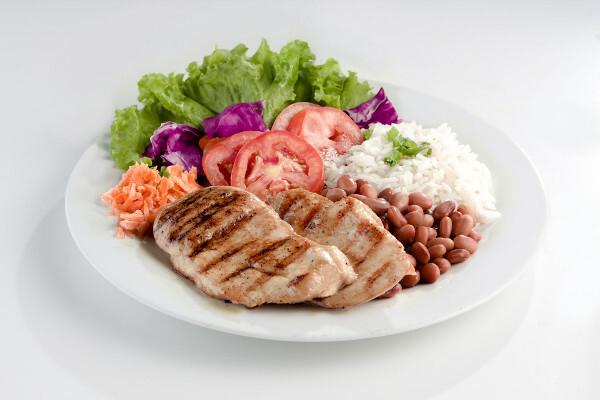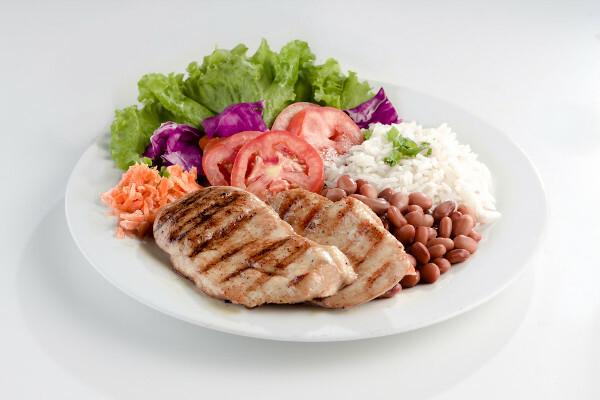caloric foods is an expression that causes fear in many people. This feeling is directly related to the fact that high-calorie foods are considered the villains of any diet. However, are these foods really that dangerous? Are they really responsible for weight gain? To answer these questions, it is essential that we understand what a calorie is and what the famous caloric foods are.
Read more: Food pyramid – what is it for and Brazilian version
What is a calorie?
Calorie is the amount of heat needed to raise the temperature of 1 g of Water. Kilocalorie, in turn, is the amount of heat needed to raise the temperature of 1 kilogram of water by 1 ºC; corresponds to 1000 calories. On food packaging, the calories mentioned there are actually kilocalories, and the term calorie, in this case, is used to refer to the amount of energy produced per given nutrient, when metabolized by the body.
At proteins and the carbohydratesare responsible for generating, for each gram, from 4 kcal to 5 kcal of energy, while the
fats generate 9 kcal. These three macronutrients are, therefore, the main suppliers of calories. It is worth noting that the water, the vitamins and the mineral salts, despite not providing energy, are fundamental for the Human Body, performing essential functions for our survival.What is empty calorie?
Empty calorie is the term used to refer to substances that provide energy but lack other nutrients. This is the case with alcohol and soft drinks, for example.
Do calories make you fat?
The body of an average person, weighing about 75 kg, uses one food calorie (1 kcal) per minute when at rest. We therefore have a daily requirement of 1440 kcal for our bodies to function properly. The more activities we do, the more energy we need.
Do not stop now... There's more after the advertising ;)
When we supply our body with more calories than it needs, it ends up storing them as fat. According to the Food Guide for the Brazilian Population - Promoting Healthy Eating, by the Ministry of Health, this means that if the person does not eat less food or increase the physical activity, will gain weight, mainly due to the accumulation of fat, which can lead to overweight or obesity, if this imbalance is maintained for a long time.
Therefore, a lower consumption of high-calorie foods helps to reduce the total calories in the diet and, thus, prevent weight gain.

However, it is essential to emphasize that weight maintenance as well as weight loss involve a series of factors that go far beyond the simple calorie count. This is due to the fact that our bodies metabolize each food differently.
Another important point that should be highlighted is the fact that it is much more important to be concerned with what you are eating than with the amount of calories being ingested. If you want to go deeper into the topic of this topic, read: calories.
Nutritionists are the best professionals to create a food plan. These professionals are able to analyze a food far beyond its calories, helping us make smart choices when it comes to healthy eating. |
What are high-calorie foods?
You caloric foods are those that have a lot of calories. Although energy-dense foods are associated with large amounts of fat and sugar, there is also a relationship between them and the amount of water.
Foods with a large amount of water have lower energy density, while those that have low amount of water have high energy density. We can see this easily by analyzing fruits, vegetables and vegetables, which, in general, have a large amount of water and a lower energy density. Oils, butter, flour and sugar, in turn, have high energy density and low amount of water.

Examples of high-calorie foods
Among the best-known high-calorie foods, we can mention foods rich in fats and sugars, such as beverages sweets (soft drinks and industrialized juices), frying, pizza, hamburgers, hot dogs, stuffed biscuits, french fries, bacon, between others.
Read too: Shakes and the danger of diets
Diet and light foods
Many people think that diet and light foods refer to sugar-free and fat-free foods, respectively. However, this is not true. According to Anvisa, diet it's an expression used for special purpose food, as for nutrient-restricted diets, for weight control and for controlled sugar intake. A sugar-free chocolate, for example, is suitable for people diabetic, and for him you can use the term diet.
It is worth noting that most diet products are sugar free, but this is not always true, and the nutrient removed may have been another. the term light, according to Anvisa, refers to the food that may have a reduction in energy value, sugars, total fats, saturated fats, cholesterol and sodium. This food must have a 25% reduction in some nutrient when compared to the original product.
The diet and light products, therefore, do not have a defined nutritional composition, being essential to analyze the product label before purchasing it. As mentioned, a diet chocolate may not contain sugar, but it may have a higher amount of fat, so it may have a similar amount of calories as regular chocolate. So, if you look for it believing that it is a less caloric food, you will be completely mistaken (a).
By Vanessa Sardinha dos Santos
Biology teacher

